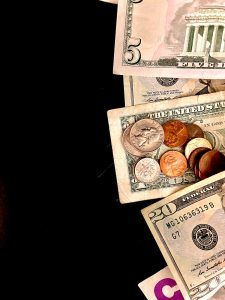Forex, or foreign exchange, is a decentralized global market where currencies are traded. The forex market is the largest financial market in the world, with an average daily trading volume of $5.3 trillion. Forex trading can be a source of income for many individuals, but it also comes with tax implications. In this article, we will explain how to file taxes on forex.
The first thing to understand when it comes to forex trading and taxes is that it is considered a form of investment. As such, any profits made through forex trading are subject to taxation. The tax rules for forex trading vary depending on the country you live in, so it’s essential to do your research and know the regulations.
In the United States, forex trading is taxed as capital gains. This means that any profits made from forex trading are subject to capital gains tax. The rate of capital gains tax in the U.S. can vary depending on how long you’ve held the investment. If you hold the investment for less than a year, it is taxed at your ordinary income tax rate. If you hold the investment for more than a year, it is taxed at the long-term capital gains tax rate, which is generally lower than the ordinary income tax rate.
To file taxes on forex trading in the U.S., you need to report your profits and losses on your tax return. You will need to file Form 8949 and Schedule D to report your capital gains and losses. On Form 8949, you will list all of your forex trades, including the date of the trade, the cost basis, the sales price, and the gain or loss. You will then transfer the information from Form 8949 to Schedule D, where you will calculate your total capital gains and losses.
It’s important to keep accurate records of all of your forex trades to ensure that you report your profits and losses correctly. You should keep track of the date of the trade, the currency pair traded, the amount of the trade, the exchange rate at the time of the trade, and any fees or commissions paid.
Another thing to keep in mind when filing taxes on forex trading is that you may be able to deduct certain expenses. If you are trading forex as a business, you can deduct expenses related to your trading activities, such as internet fees, computer equipment, and office expenses. However, if you are trading forex as an individual, you may not be able to deduct these expenses. It’s important to consult with a tax professional to determine what expenses you can deduct.
If you are trading forex in a country other than the United States, the tax rules may be different. Some countries tax forex trading as regular income, while others tax it as capital gains. It’s important to research the tax rules in your country and consult with a tax professional to ensure that you are filing your taxes correctly.
In conclusion, forex trading can be an excellent source of income, but it also comes with tax implications. To file taxes on forex trading, you need to report your profits and losses on your tax return using Form 8949 and Schedule D. It’s important to keep accurate records of all of your trades and consult with a tax professional to ensure that you are filing your taxes correctly. By following these guidelines, you can ensure that you are complying with the tax rules and avoiding any penalties or fines.





